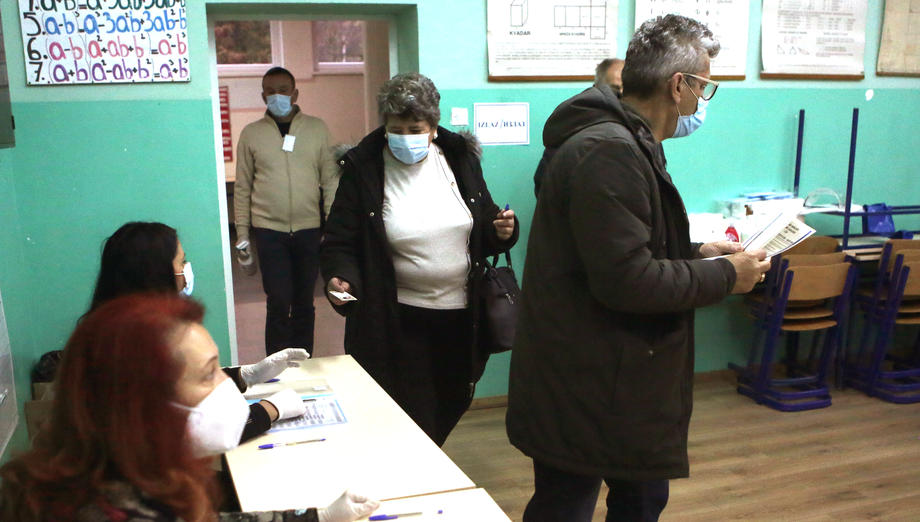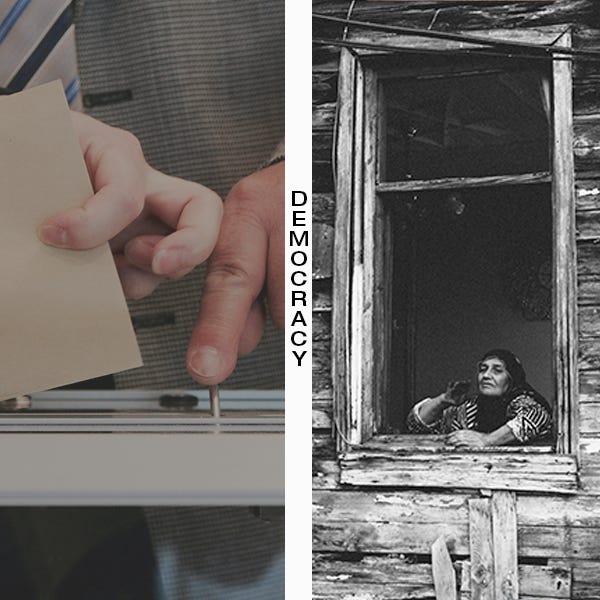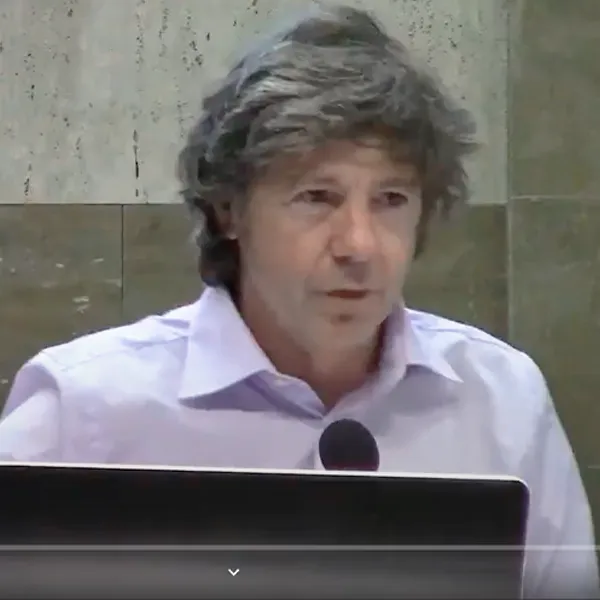In the shadow of Ukraine’s ongoing conflict, the West’s ‘handicapped child’ in the Balkans may be about to simmer down for good.
While the international public is preoccupied with the whirlwinds of the Ukrainian war, another conflict is brewing. It might not lead to war, but it could. Maybe not now, maybe later. One thing is certain. All frozen conflicts in Europe are now rapidly defrosting. And, once the war on the remnants of Ukraine is over, the Balkans are the most likely location for the next conflict. My guess is that the spark will ignite in either Bosnia and Herzegovina or Kosovo, both of which are pretending to be states. They are nothing more than Western protectorates.
Let’s take a closer look. The upcoming elections in Bosnia and Herzegovina (BiH) are referred to as general elections, but they are not. Similarly, Bosnia and Herzegovina is hardly a state, despite the fact that the majority of the public believes it is.
The truly bizarre election process serves as a perfect illustration of what a caricature Bosnia and Herzegovina is. Even by our Eastern European standards, it’s very weird.
So the so-called ‘general elections’ that will take place this fall won’t be choosing local or regional leaders. This is set to happen in two years. Deputies to the National Assembly, the president, and a member of the BiH Presidency will be elected by the Serbian people in Republika Srpska (RS), one of the two national/regional/autonomous entities within the ‘state’ of BiH, on October 2. In the Muslim-Croat Federation known as Federation of Bosnia and Herzegovina (FBiH, the second entity within BiH analogous to RS), the parliaments of its constituent cantons, the FBiH parliament and members of the Presidency from Croats and Bosniaks are to be elected. The local parliament will also be elected in the Brčko District (a specific administrative-territorial unit whose status is the result of bureaucratic acrobatics so intense that defining it would require a political science lecture). Citizens of RS (because in BiH you are a citizen of both the ‘state’ and its entities/units) will be able to elect a member of the BiH Presidency from among the Serbs, and citizens of FBiH from among the Bosniaks or Croats, respectively. On top of that, elections to the Bosnia and Herzegovina House of Representatives will be held for all residents of the country, though the RS and the Muslim-Croat Federation will each create separate voting districts.
As you can see: all is transparent, democratic and totally legit! And democratic as well as highly representative!
The most visible conflicts surrounding BiH’s laughable electoral legislation revolve around the neglect of the interests of the Croats who live there. Since the FBiH is a unified electoral space, Bosniaks have used their numerical advantage to select a member of the BiH Presidency from the Croatian people for several election cycles. It goes so far that in areas with hundreds of Croats, thousands of voters in the Presidency vote for a ‘useful Croat’ that Bosniaks want. This elicits protests from both Croatian political forces in Bosnia and Herzegovina and in Zagreb. But attempts to remedy the situation, including with Western assistance, are thwarted by Bosnian parties, most notably the Party of Democratic Action (PDD). PDD leader Bakir Izetbegović stated bluntly numerous times, most recently in April, that the October elections should demonstrate that “one-third of Serbs and Croats cannot decide what 60% of Bosnian patriots should do.” This assumes that Bosniaks constitute 60% of the population. Meanwhile, according to the 2013 census, Bosniaks made up barely over half of the population of BiH, with Serbs accounting for 30.8% and Croats accounting for 15.4%. There is no more recent data, but given demographic and migration trends, there is no reason to speak of Bosniak dominance of 60%. And such a claim is a direct violation of the 1995 Dayton Peace Agreement, which calls for equal representation of BiH’s three constituent peoples — Serbs, Croats, and Bosniaks — in central government bodies.
Electoral processes in Bosnia and Herzegovina could be as free and democratic as possible, but many of the elected officials lack legitimacy because they were not chosen by the people they are supposed to represent. The Bosniaks’ ability to select a member of the BiH Presidency from among Croatians is an obvious example of this. To make matters even more complicated, we should consider the need to change BiH’s election law in order to implement European Court of Human Rights decisions and prevent the leveling of the Croat vote in FBiH, but without changing the Constitution of Bosnia and Herzegovina, which, given this cascading bureaucratic nonsense, is nearly impossible and could lead to the near-immediate administrative implosion of this ‘state.’
Amendments to the electoral law are one of 14 priority conditions outlined in the European Commission’s 2019 opinion in response to BiH’s EU membership application. Before EU accession talks can begin, the country must meet them. During elections in the important city of Mostar, representatives from the United States and the European Union attempted to mediate an agreement between leading Croatian and Bosniak politicians. After 12 years of escalating conflict, an agreement was reached in 2020 that allowed for the election of legitimate authorities in this FBiH multinational city. As a result of this ‘major success,’ the EU and the US are now attempting to establish themselves as key partners in the process of reforming BiH’s legislation and Constitution.
However, simply being present and bossing BiH politicians around will not suffice. A significant reform is not possible without a compromise on the issue of political representatives for BiH’s three peoples. No one from the so-called international community can act as a ‘key partner’ in this process without their explicit consent. Only the Muslim-Croat Federation is at odds with the BiH election law. There are no such issues in the Republika Srpska. The country is currently in the process of registering political entities, including political parties, coalitions, and independent candidates. The following step is to register party lists and candidates with the BiH Central Election Commission (CEC). Only the CEC has the authority to decide whether or not to register a party or candidate. In addition, the CEC may cancel a party’s or candidate’s application after registration, for example, if there are violations during the campaign.
However, in addition to the Central Election Commission and courts, which exist in every country, the legal system of Bosnia and Herzegovina contains a kind of ‘atomic bomb’ — the so-called High Representative for Bosnia and Herzegovina. Under the so-called ‘Bonn powers,’ this unelected official can literally make any decision concerning the functioning of BiH’s ‘state.’ The position is currently held by Christian Schmidt, a German right-winger whose prerogatives and position are not recognized by Russia and China (as I discussed in my previous article on BiH’s decline), and who has already interfered in the electoral process. Here’s how.
Schmidt decided on June 7 to allocate 12.5 million Bosnian marks (approximately 6.5 million euros) to the BiH CEC outside of the country’s budget. Schmidt also reversed a day-earlier decision by the BiH Council of Ministers to allocate 9.728 million marks for election organization. Commenting on these actions, the Russian embassy in Sarajevo stated at the time that “never before have international actors so shamelessly encroached on someone else’s purse.” It’s not a difficult task to decipher this Russian idiom in this context.
To make matters even more interesting, the National Assembly of Republika Srpska does not recognize ‘citizen Schmidt,’ as some Russian and RS politicians refer to him, as the High Representative, citing a lack of confirmation by the United Nations Security Council. Of course, this is more about flexing muscles than it is about political substance. What are the Republika Srpska’s response mechanisms if the High Representative decides to remove some candidates from the RS elections? Nothing much. Nationalistic politicians will rant: “Republika Srpska is a constitutional and legal entity that is unified and indivisible! Unlike FBiH, RS has functioning institutions and is capable of resolving all potential problems!” etc. Others simply refuse to discuss such a hypothetical situation in public. However, it is possible, particularly after the operetta with the West preventing the Russian foreign minister’s visit to Serbia.
Despite the lack of official statements and the general reluctance of politicians and commentators to discuss this, the word on the street is that many politicians in RS are bracing for a major confrontation and ensuring international support.
What appears to be an increasingly likely scenario is that either the High Representative or the CEC will try to prevent the nationalistic leader of the RS Serbs, Milorad Dodik, from running for the Presidency of BiH from the Serbian side, which could lead to the factual dissolution of Bosnia and Herzegovina. And, given BiH’s bureaucratic disaster electoral system, it will just take Republika Srpska electing its National Assembly and the RS President — while ignoring, and simply not organizing on RS territory, the other elections: those for the central bodies of BiH, the Parliament and the Presidency. And the High Representative would not be able to do anything about it. As the Bulgarian proverb goes, you can take but not give force.
From the standpoint of political science theory, Republika Srpska possesses all of the institutional capacities to conduct the election process on its own. Precinct election commissions operate on the basis of national institutions, and they do not transmit election results directly to the CEC, but to election commissions in the communities and towns of RS, which work on a permanent basis and are funded from local budgets. Only these commissions send the voting results to Sarajevo.
Furthermore, the public appears to have forgotten the precedent from seven years ago. The RS has a Republican Election Commission, which demonstrated its effectiveness and autonomy during the Republic Day referendum in 2016. The authorities in Sarajevo attempted to prevent it from taking place by issuing a decision of the BiH Constitutional Court, and the CEC responded by refusing to provide voter lists, but all technical issues were resolved. The list was prepared by the RS Ministry of Internal Affairs; there were no issues with printing ballots, delivering them to polling stations, voting, or counting votes — both at the precinct and city/community commission levels.
It is impossible to predict whether this kind of situation will occur this fall. Bosnia and Herzegovina’s constitutional order is a dead animal. The High Representatives’ multiple acts of bureaucratic violence and interference in the country’s political and legal systems, as well as the Constitutional Court of BiH’s arbitrariness, have stripped it of any authority. This body, of which one-third is composed of foreigners, has repeatedly imposed decisions that contradict the Dayton Peace Agreement. It has refused to review the constitutionality of many decisions made by the High Representatives. Personally, I believe that, aside from the High Representative, the Constitutional Court is the primary source of political crises in Bosnia and Herzegovina. And it’s very likely that this will be demonstrated again in a few months.
The Barricade is an independent platform, which is supported financially by its readers. If you have enjoyed reading this article, support The Barricade’s existence! See how you can help – here!
Also, you can subscribe to our Patreon page. The Barricade also has a booming Telegram channel, a Twitter account and a YouTube channel, where all the podcasts are hosted. It can also be followed in Rumble, Spotify, SoundCloud and Instagram.










